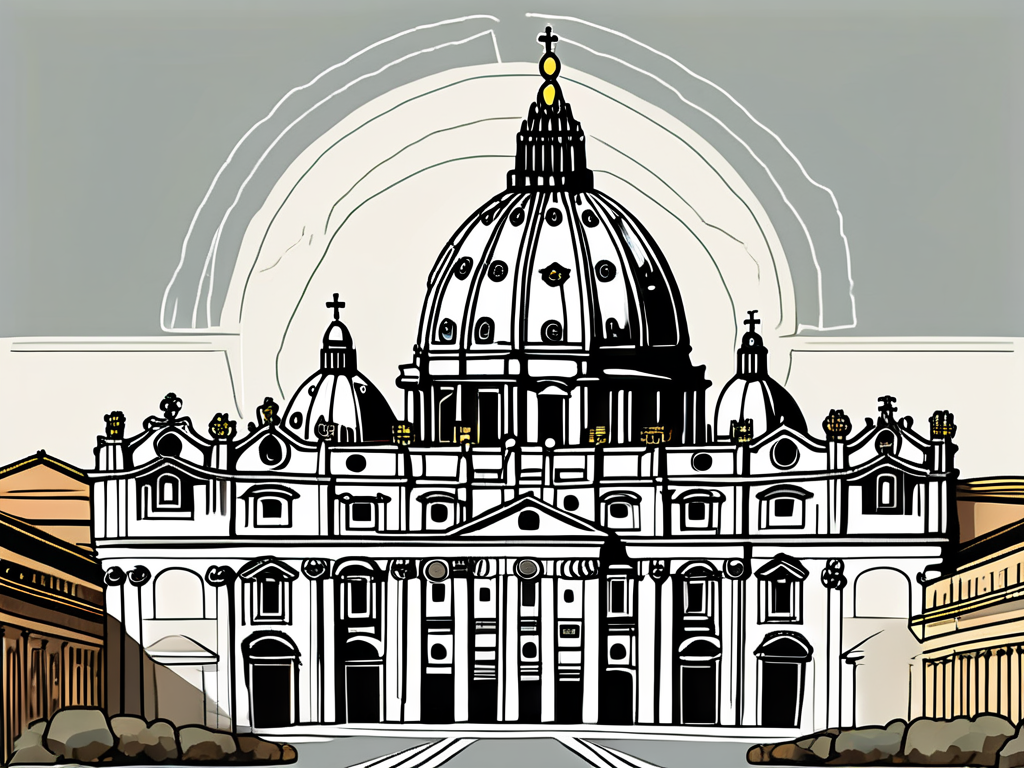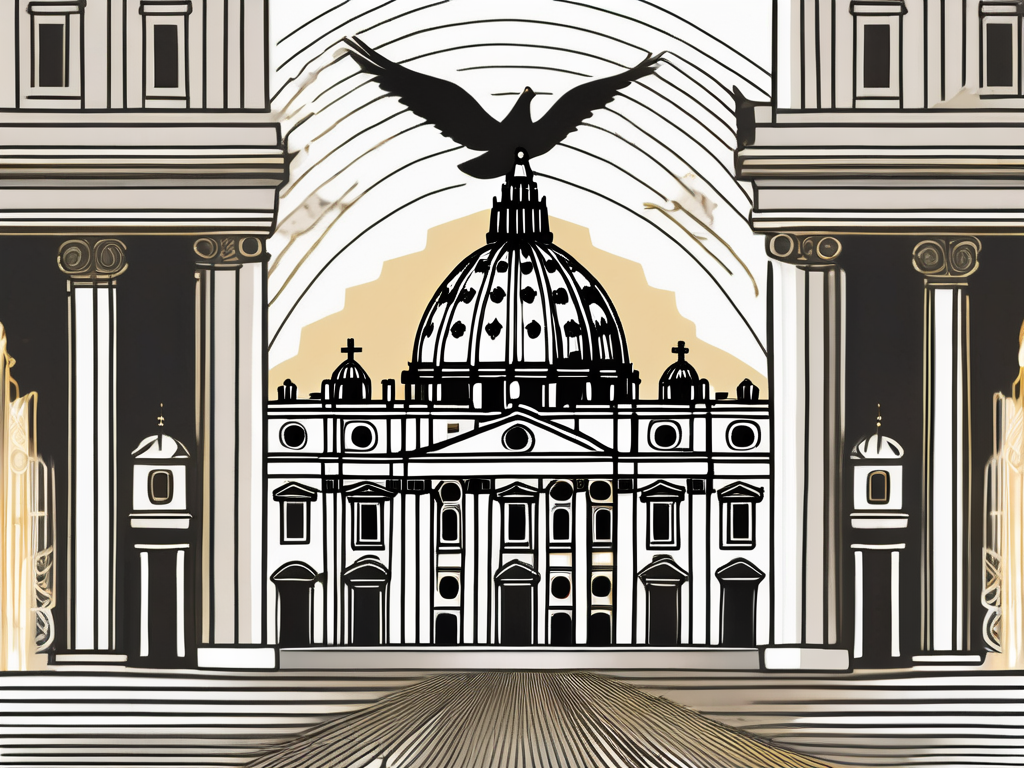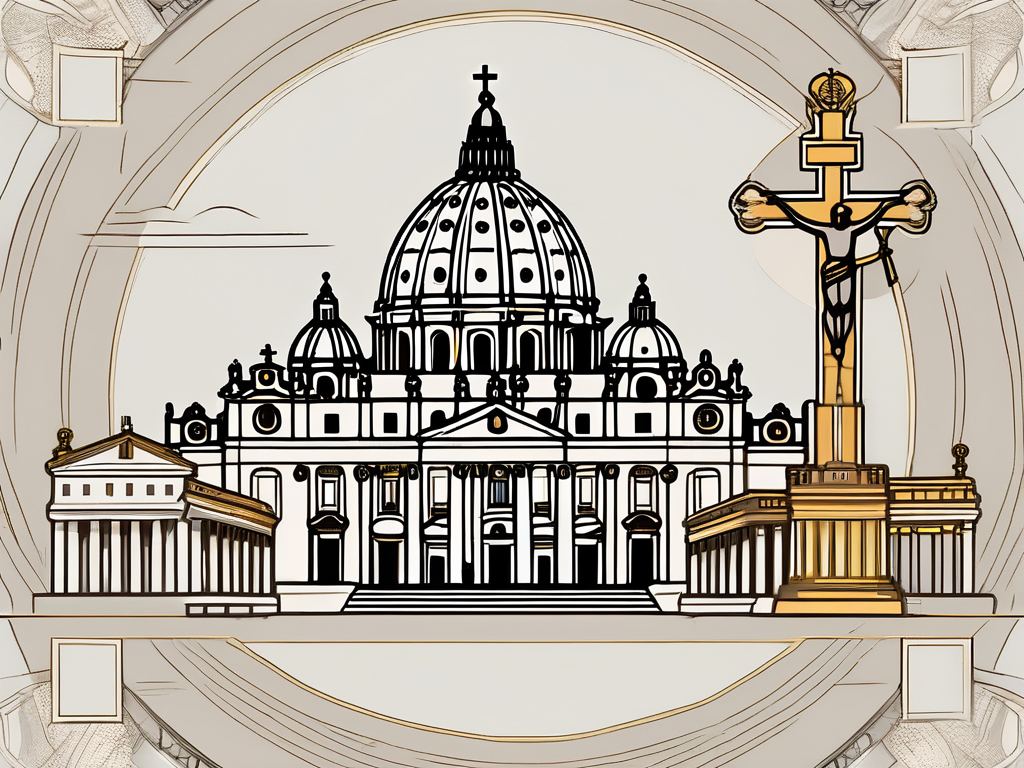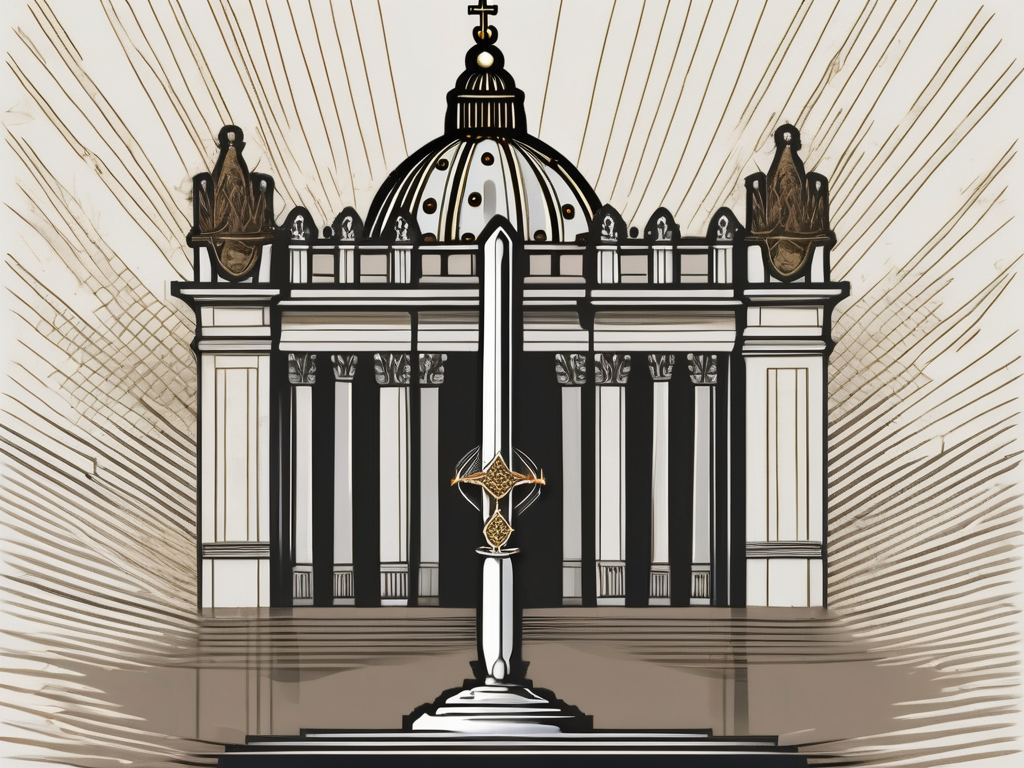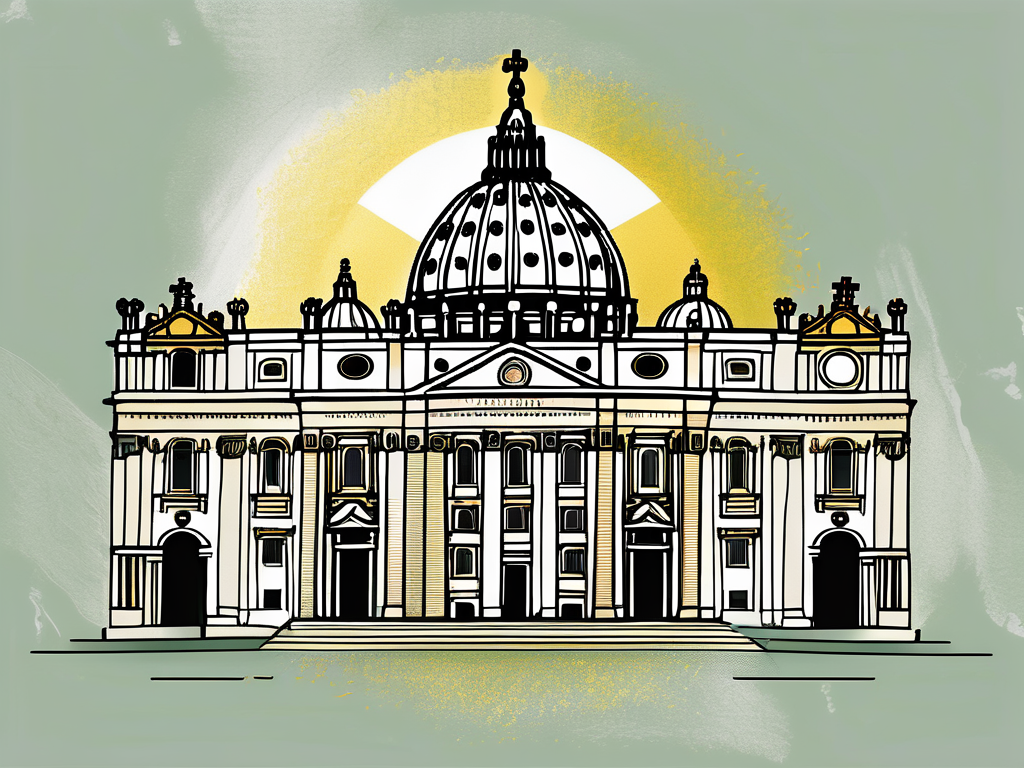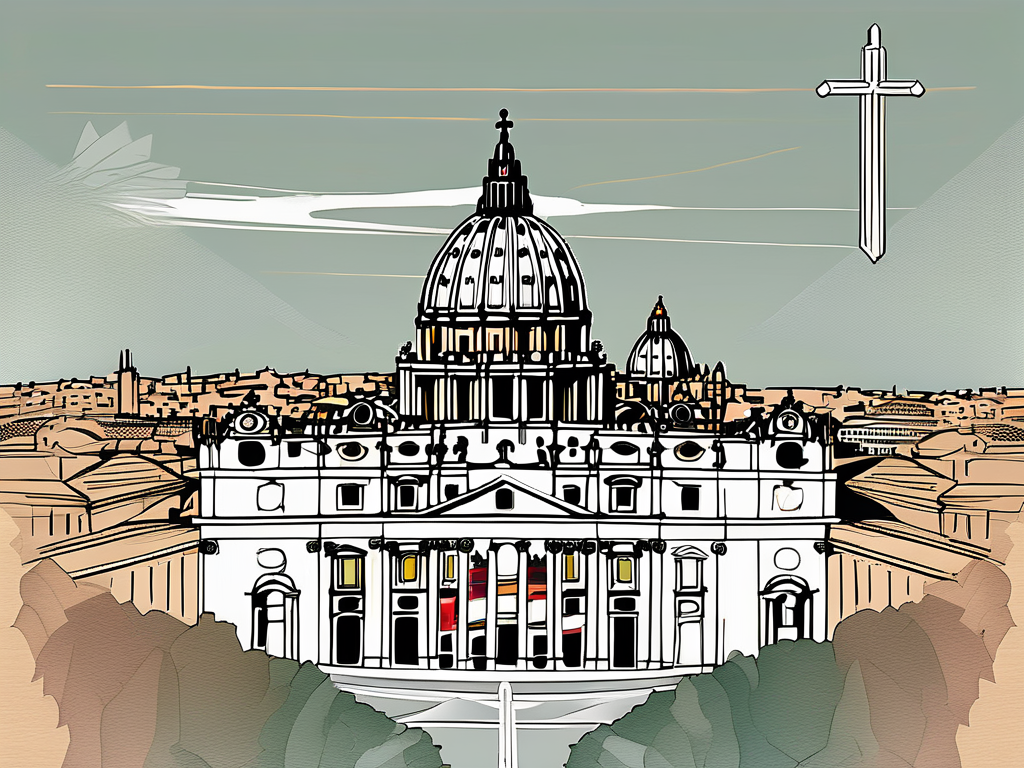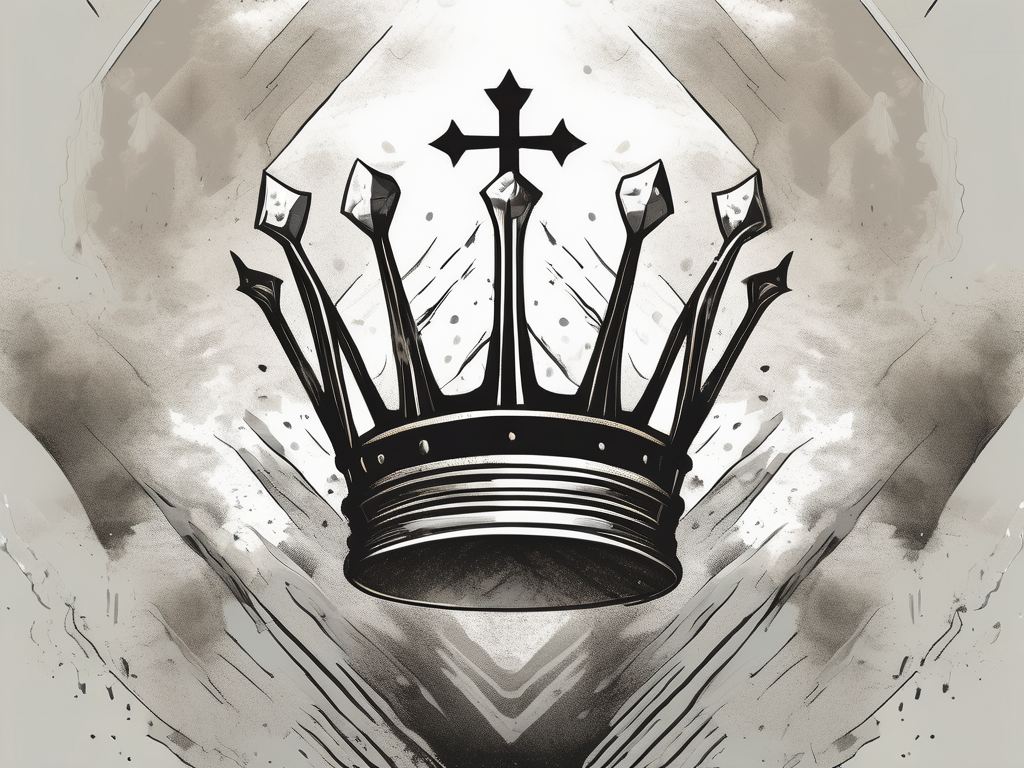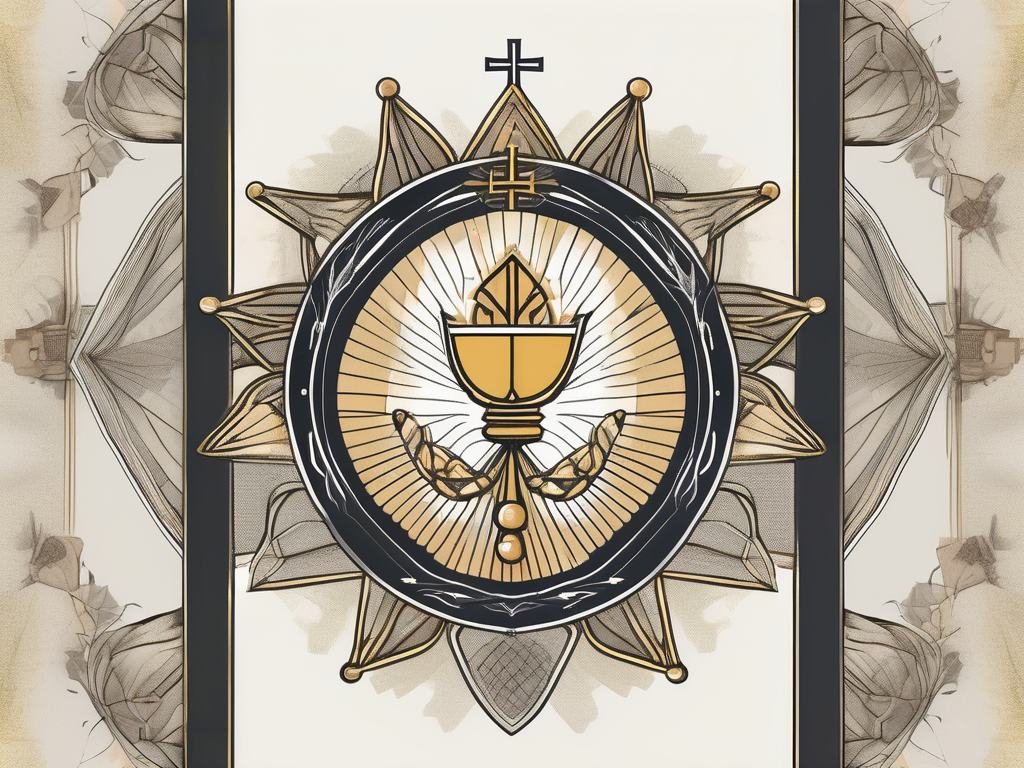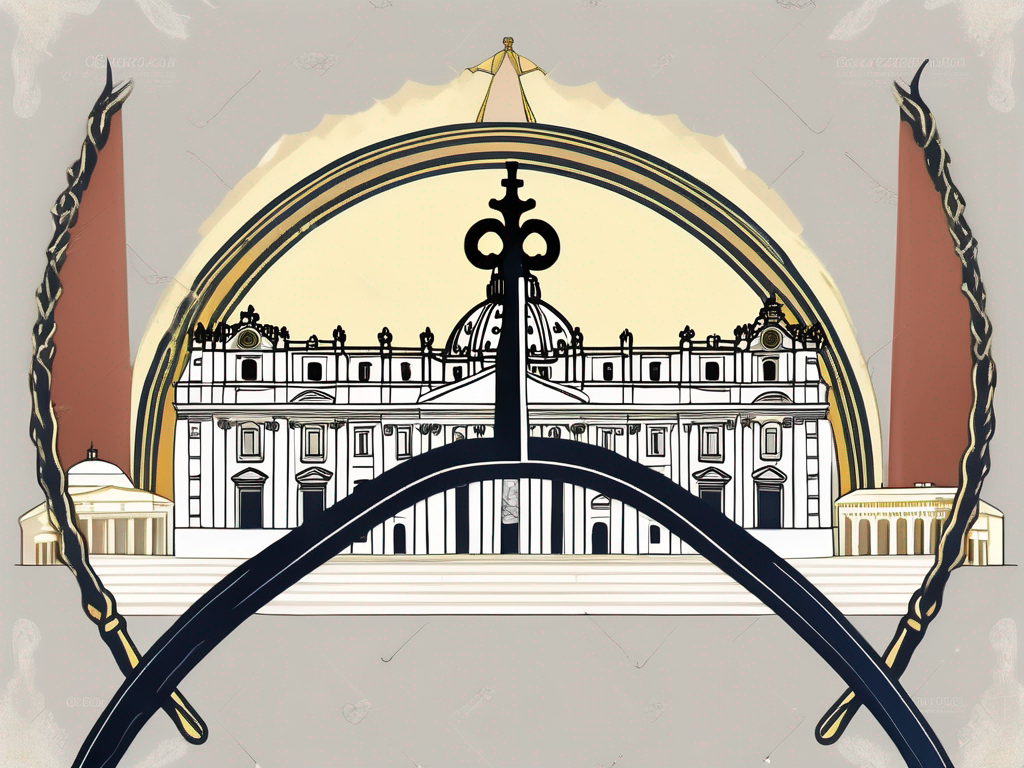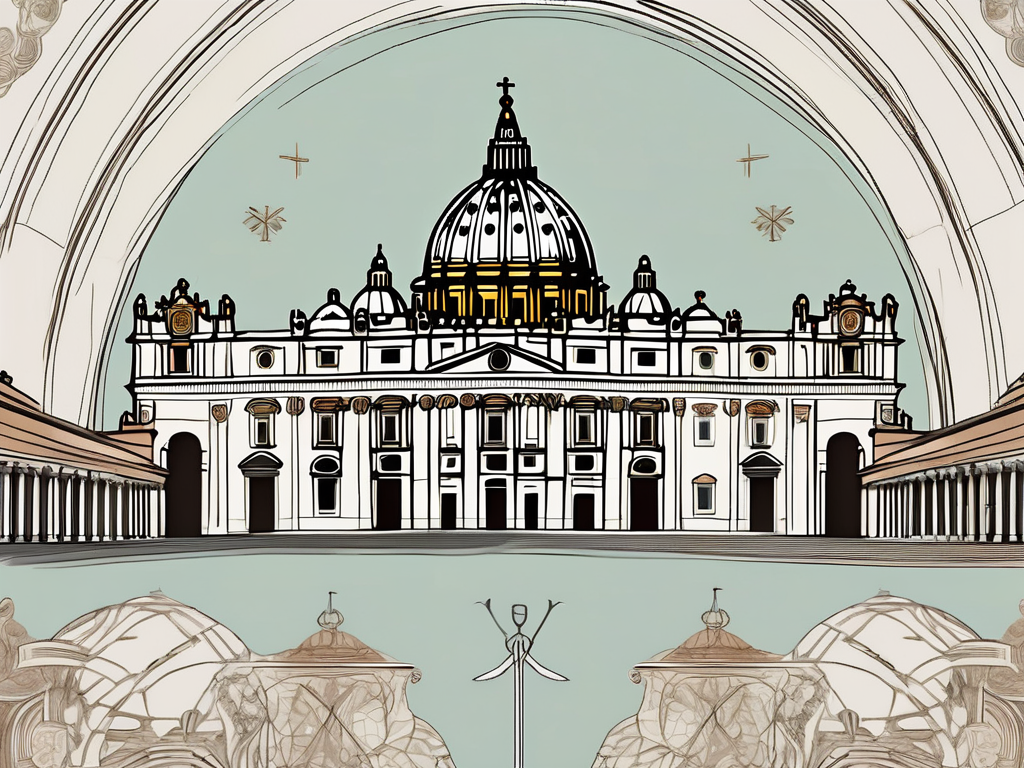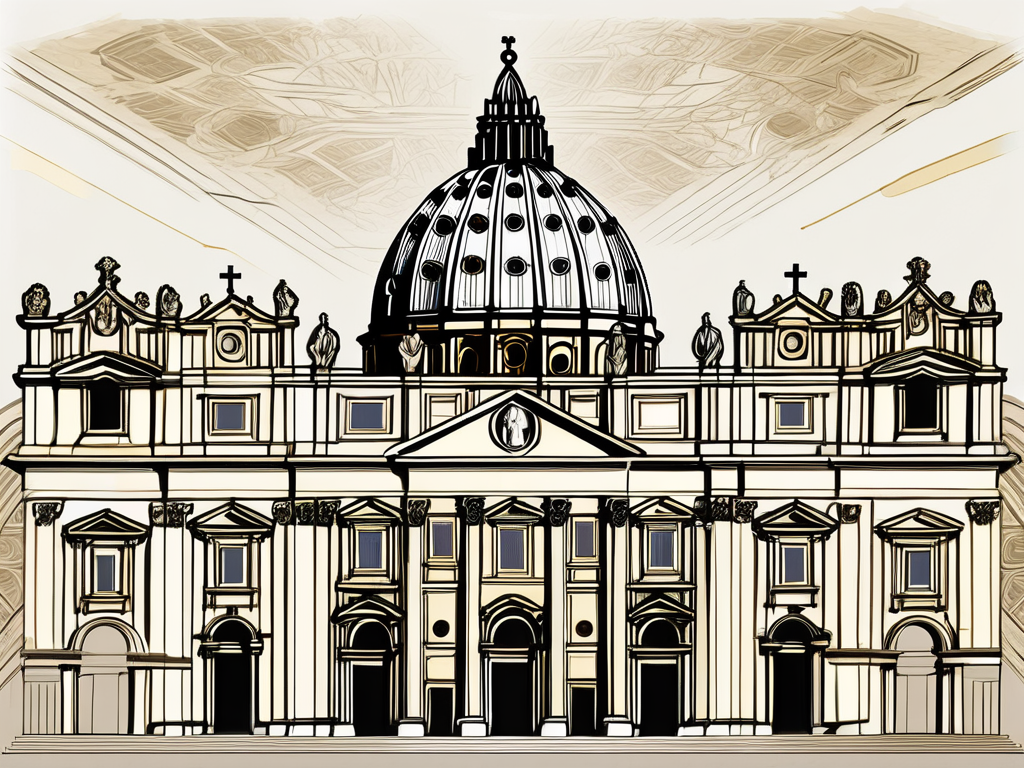Pope Alexander III, born Roland of Siena, was a prominent figure in the Catholic Church during the 12th century. His life and legacy continue to be influential even today. Let’s take a closer look at the early life and education of Pope Alexander III, his ascension to the papacy, his contributions to the Church, his political influence and diplomacy, and the controversies and conflicts he encountered.
Early Life and Education of Pope Alexander III
Born in 1105, Alexander III came from a noble family in Siena, Italy. His parents, Stefano and Maria, were devout Catholics who instilled in him strong religious values from an early age.
Alexander received a comprehensive education, studying theology, philosophy, and canon law. His keen intellect and passion for learning set a solid foundation for his future endeavors.
Birth and Family Background
Alexander III was born into a family that held significant influence in local politics. His family’s wealth and connections played a crucial role in shaping his early life and eventual rise to the papacy.
Despite being born into privilege, Alexander remained humble and committed to serving God and the Church.
His family’s noble lineage traced back several generations, with ancestors who had served in various positions of power and authority. This rich family history instilled in Alexander a sense of duty and responsibility towards his community and the Catholic Church.
From a young age, Alexander witnessed the inner workings of politics and diplomacy through his family’s involvement in local affairs. This exposure to the complexities of governance and the challenges faced by those in power would later prove invaluable in his role as Pope.
Education and Early Religious Influences
Alexander’s education was centered around religious studies. He studied under renowned scholars, who recognized his exceptional intellect and dedication to his studies.
His teachers, impressed by his thirst for knowledge and unwavering commitment to his faith, provided him with guidance and mentorship that would shape his spiritual journey.
As he delved deeper into theology, Alexander became inspired by the teachings of religious leaders such as St. Bernard of Clairvaux and St. Bernard of Pisa, who emphasized the importance of humility and compassion.
Through his studies, Alexander developed a profound understanding of the Church’s doctrines and the intricacies of canon law. This knowledge would later prove crucial in his role as Pope, as he navigated the complex web of ecclesiastical politics and sought to uphold the teachings of the Catholic Church.
Furthermore, Alexander’s education extended beyond the confines of the classroom. He immersed himself in the works of influential philosophers and thinkers of his time, such as Aristotle and Augustine. These diverse intellectual pursuits broadened his perspective and equipped him with the critical thinking skills necessary for his future leadership.
Throughout his education, Alexander remained deeply committed to his faith, attending religious services and participating in charitable activities. His unwavering devotion to God and the Church would serve as a guiding light throughout his life, shaping his decisions and actions as Pope.
Ascension to Papacy
The path to becoming the Pope was not an easy one for Alexander III. He faced numerous challenges along the way but managed to overcome them with conviction and determination.
Alexander III’s journey to the papacy was marked by a series of trials and tribulations that tested his faith and leadership abilities. From his humble beginnings as a young cleric to his eventual rise as the head of the Catholic Church, his story is one of resilience and unwavering commitment.
As a young man, Alexander III displayed exceptional intellectual prowess and a deep devotion to his faith. His unwavering dedication to the teachings of the Church earned him the respect and admiration of his peers, setting the stage for his future endeavors.
Election and Challenges
In 1159, following the death of Pope Adrian IV, Alexander III was elected as the successor. His election was not without controversy, as another candidate, Victor IV, also claimed the papal throne.
The election of Alexander III triggered a fierce power struggle within the Church, with factions supporting both candidates vying for control. This tumultuous period, known as the “Papal Schism,” threatened to divide the Church and undermine its authority.
Alexander faced relentless opposition from those who questioned the legitimacy of his election. Despite the challenges, he remained steadfast in his conviction, tirelessly working to bridge the divide and restore unity within the Church.
With his charismatic leadership and unwavering faith, Alexander III managed to gain widespread support from bishops and clergy, solidifying his position as the true Pope. His ability to navigate through the stormy waters of controversy showcased his diplomatic skills and unwavering commitment to the Church’s mission.
Key Decisions and Policies
During his papacy, Alexander III made several key decisions and implemented policies that had a lasting impact on the Church. He prioritized church reform, focusing on strengthening the authority of the papacy and combating corruption within the clergy.
Alexander III recognized the urgent need for reform within the Church, as corruption and abuse of power had tarnished its reputation. He implemented stringent measures to hold clergy members accountable for their actions, ensuring that they upheld the highest moral and ethical standards.
Furthermore, Alexander III played a vital role in establishing the independence and sovereignty of the Church from secular powers. He firmly believed in the separation of church and state, advocating for the Church’s autonomy in matters of faith and doctrine.
Under his guidance, the Church became a powerful institution that wielded significant influence, not only in matters of spirituality but also in shaping the political landscape of Europe. Alexander III’s unwavering commitment to the Church’s mission ensured that its voice was heard and respected on matters of great importance.
In conclusion, Alexander III’s ascension to the papacy was a testament to his unwavering faith, leadership abilities, and commitment to reform. Through his decisive actions and steadfast determination, he left an indelible mark on the history of the Catholic Church, shaping its future and ensuring its continued relevance in a rapidly changing world.
Pope Alexander III and the Church
Alexander III’s reign as Pope was marked by significant reforms within the Church and his efforts to foster positive relationships with other religious leaders.
Reforms and Doctrines
One of Alexander’s primary objectives was to reform the Church, ensuring that its teachings and practices aligned with its core principles. He emphasized the importance of moral conduct, integrity, and charity among the clergy.
Under his leadership, the Church implemented various reforms to address corruption and misconduct within its ranks. Alexander III established stricter guidelines for the selection and training of priests, aiming to ensure that only individuals of high moral character and deep religious devotion would serve as spiritual leaders.
Furthermore, Alexander III sought to strengthen the Church’s doctrinal foundation. He reaffirmed the belief in transubstantiation, the teaching that the bread and wine used in the Eucharist become the actual body and blood of Christ. This doctrine, central to Catholic theology, was reinforced by Alexander III to deepen the faithful’s understanding and reverence for the sacrament.
In addition to transubstantiation, Alexander III emphasized the concept of papal supremacy. He firmly asserted the Pope’s authority over all other bishops and religious leaders, solidifying the hierarchical structure of the Church. This doctrine not only consolidated the Pope’s power but also provided a unified voice for the Catholic Church.
Moreover, Alexander III placed great importance on the sacraments, believing that they were essential for the spiritual growth and salvation of the faithful. He encouraged regular participation in the sacraments, particularly the sacrament of confession, which he viewed as a means of spiritual renewal and reconciliation with God.
Relationship with Other Religious Leaders
Alexander III recognized the importance of interfaith dialogue and fostered relationships with religious leaders outside of the Catholic Church. His efforts to promote unity and understanding were instrumental in improving relations between different faiths.
During his papacy, Alexander III engaged in diplomatic exchanges with leaders of various religious traditions, including Islam and Judaism. He sought to establish common ground and build bridges of understanding, recognizing the shared values and aspirations that underpin different faiths.
Furthermore, Alexander III actively promoted dialogue and cooperation between the Catholic Church and the Eastern Orthodox Church. He worked towards healing the centuries-old schism between the two branches of Christianity, seeking to restore unity and communion.
Alexander III’s commitment to interfaith dialogue and cooperation extended beyond formal meetings and discussions. He encouraged cultural exchanges, fostering an environment where different religious traditions could learn from one another’s practices and beliefs.
Through his efforts, Alexander III aimed to create a more inclusive and tolerant society, where people of different faiths could coexist peacefully and work together towards common goals.
Political Influence and Diplomacy
Aside from his spiritual duties, Alexander III held significant political influence during his papacy. His diplomatic skills and ability to navigate complex political landscapes allowed him to make a substantial impact on the world stage.
Role in the Crusades
Alexander III played a crucial role in the Crusades, providing support and guidance to the Christian forces. He issued papal bulls and rallied support from European rulers, encouraging them to take up arms and defend the Holy Land.
Diplomatic Relations with Kings and Emperors
Alexander III established diplomatic ties with various kings and emperors, mediating disputes and promoting peace. His ability to navigate political tensions and foster cooperation between rulers led to significant diplomatic achievements.
Controversies and Conflicts
Not immune to controversy, Alexander III faced several conflicts and disputes during his papacy. These challenges tested his leadership and required him to maneuver through troubled waters.
Disputes with Frederick Barbarossa
One of the most notable conflicts Alexander III encountered was his prolonged disagreement with Emperor Frederick Barbarossa. This clash of authority led to a series of battles, with both sides vying for dominance.
Despite the challenges, Alexander III remained steadfast in defending the Church’s autonomy and ultimately emerged victorious.
The Schism within the Church
Alexander III’s papacy coincided with a period of division within the Church. The emergence of competing factions and the proliferation of heretical teachings threatened the unity of Catholicism.
As Pope, Alexander played a crucial role in quelling these divisions and reestablishing the Church’s authority.
The Enduring Legacy of Pope Alexander III
Pope Alexander III left an enduring legacy, defined by his commitment to church reform, promotion of unity among different faiths, and skilled diplomacy. His contributions to the Church and society as a whole continue to be recognized and celebrated.
His reign as Pope set the stage for future leaders and paved the way for the Church’s continued influence and relevance in the world. Pope Alexander III’s emphasis on moral conduct, compassion, and integrity remains a guiding light for Catholics and serves as an inspiration to all who seek to lead with grace and wisdom.
